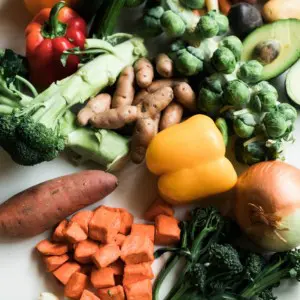
Vegetables
To maximize yield and quality, vegetable crops require intensive management, and growers must ensure soil is well-drained, and that plants are receiving water with low salinity and the right balance of nutrients. See how Verdesian’s portfolio of nutrient use efficiency products can help ensure a bountiful crop this harvest.
View Vegetable ProductsWhat You Need to Know About Vegetables
Top Vegetable Products
Legend
Vegetable Crop FAQs
What are the best practices for planting and growing vegetable crops?

What are the optimal soil type, pH level, and nutrient requirements for growing different vegetables?

What are the most effective irrigation and fertilization methods for different types of vegetable crops?

How can I extend the growing season for my vegetable crops, especially during adverse weather conditions?

What are the most common mistakes that farmers make when growing vegetable crops?

Key Considerations for Vegetable Crops
Soil & Water Requirements
Vegetable crops are highly perishable and require intensive management to maximize crop yield and quality. Because of this, vegetables grow best on well-drained, graded fields, although they can be grown in almost any soil type that drains well.
Vegetables are sensitive to water quality, preferring low salinity without a lot of soluble salts. However, they do require more water — and more management of water — than most other crop types. They’re also susceptible to disease and pest pressure, so it’s important to scout often and use integrated pest management practices throughout the season.
Key Nutrients
Nitrogen
Very important for cell growth; however, too much can damage the plant. Ideal nitrogen levels vary by vegetable.
Phosphorus
Important for early development, flowering and fruit set, but too much can affect quality
Potassium
Needed in very large quantities, as it’s very important in fruit formation.
Calcium
A secondary macronutrient that promotes healthy plant growth; needed in high quantities.
Magnesium
Secondary macronutrients that promote healthy plant growth.
Sulfur
Secondary macronutrients that promote healthy plant growth.
Boron
Important for healthy cell growth, translocation of sugars and nutrients and protein synthesis.
Zinc
Helps form indole acetic acid, a plant growth regulator.
Iron
Needed for photosynthesis and to defend against disease.
Learn More from the Specialty Crop Nutrient Use Efficiency People
At Verdesian Life Sciences, our specialty crop technologies are as varied and broad as the specialty crops themselves.
Products for Vegetables
Legend
Ferrous (Iron) Sulfate














